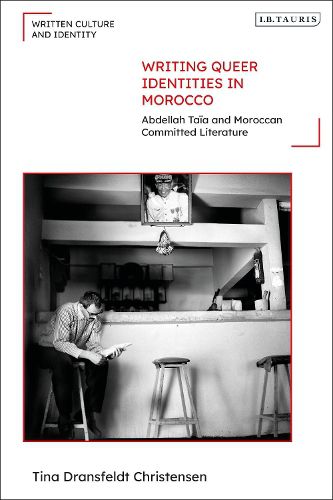Readings Newsletter
Become a Readings Member to make your shopping experience even easier.
Sign in or sign up for free!
You’re not far away from qualifying for FREE standard shipping within Australia
You’ve qualified for FREE standard shipping within Australia
The cart is loading…






This book explores queer identity in Morocco through the work of author and LGBT activist Abdellah Taia, who defied the country’s anti-homosexuality laws by publicly coming out in 2006. Engaging postcolonial, queer and literary theory, Tina Dransfeldt Christensen examines Taia’s art and activism in the context of the wider debates around sexuality in Morocco.
Placing key novels such as Salvation Army and Infidels in dialogue with Moroccan writers including Driss Chraibi and Abdelkebir Khatibi, she shows how Taia draws upon a long tradition of politically committed art in Morocco to subvert traditional notions of heteronormativity. By giving space to silenced or otherwise marginalised voices, she shows how his writings offer a powerful critique of discourses of class, authenticity, culture and nationality in Morocco and North Africa.
$9.00 standard shipping within Australia
FREE standard shipping within Australia for orders over $100.00
Express & International shipping calculated at checkout
Stock availability can be subject to change without notice. We recommend calling the shop or contacting our online team to check availability of low stock items. Please see our Shopping Online page for more details.
This book explores queer identity in Morocco through the work of author and LGBT activist Abdellah Taia, who defied the country’s anti-homosexuality laws by publicly coming out in 2006. Engaging postcolonial, queer and literary theory, Tina Dransfeldt Christensen examines Taia’s art and activism in the context of the wider debates around sexuality in Morocco.
Placing key novels such as Salvation Army and Infidels in dialogue with Moroccan writers including Driss Chraibi and Abdelkebir Khatibi, she shows how Taia draws upon a long tradition of politically committed art in Morocco to subvert traditional notions of heteronormativity. By giving space to silenced or otherwise marginalised voices, she shows how his writings offer a powerful critique of discourses of class, authenticity, culture and nationality in Morocco and North Africa.